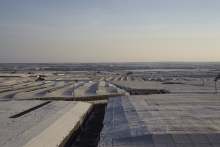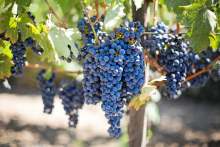Located in the Andean Amazon, Peru is known as one of the most biodiverse regions in the world. Tropical forests cover over half of this amazing country, which is also home to countless remarkable species. Peru is also home to millions of indigenous people and one of the largest of these groups is the Asháninka, who have lived in the region for thousands of years.
During the 1990s, thousands of Asháninka perished or were forced to flee their homes in a deadly civil conflict that claimed tens of thousands of lives. The Rainforest Foundation UK (RFUK) started working with the Asháninka in 1998, as Peru started to emerge from this conflict.
Working in close cooperation with local indigenous organisations, our early work in Peru involved helping thousands of Asháninka first to reclaim their lands, then to improve their livelihoods and gain economic independence.
New projects
In 2009, after a decade working with the Asháninka to secure and formalise their land rights, RFUK and our local partners embarked on what has become one of our most successful initiatives to date: our Sustainable Livelihoods project. The idea behind this project is simple: to help indigenous families increase their incomes through the production of environmentally-friendly cacao (cocoa).
As it happens, the Ene River region in the heart of Peru – home to roughly 10,000 Asháninka people – is an ideal environment for growing cacao. While Asháninka families still largely depend on the forest for their subsistence, cacao production represents an important source of monetary income. It helps pay for medicines, school materials and other basic products. Most importantly, the cacao can be grown under the forest canopy, a feature that not only prevents deforestation but also results in better flavour and more diverse crops.
Using co-operatives
In 2010, RFUK and CARE helped producers form a co-operative association called Kemito Ene, which brings growers together to market their cocoa under organic and fair trade certifications. Acting as a local social enterprise, Kemito Ene has enabled Asháninka families to significantly increase their incomes and wellbeing, all while respecting their culture and the environment.
"We growers like Kemito Ene because it is buying cocoa and is paying more than local intermediaries,” explains Salomon Perez, a local Asháninka cocoa grower. “I have four children, and three are now in school thanks to the income from our cocoa."
In addition to offering growers a fairer price, RFUK and Kemito Ene have also helped them increase the size of their harvests by giving them access to new equipment and bringing them together to share better farming techniques.
Growers benefiting
Pedro Chiricente grows cocoa in the village of Pamakiari and is one of many growers who benefited from Kemito Ene’s training services. “Before this project, I used to produce 30kg of cocoa in a quarter of a hectare. By 2010, I produced 700kg. Soon, I was producing 900kg.”
Pedro’s case is not a statistical outlier. Between 2010 and 2017, overall cacao production increased from 1.5 tonnes to 60 tonnes. Not only has the quantity increased, so too has the quality, and this has attracted the attention of international buyers, like organic chocolate-maker Loving Earth.
In 2016, Loving Earth signed a partnership with Kemito Ene, bringing Asháninka cocoa for the first time to shops in the UK, Europe and US.
When it was founded in 2010, Kemito Ene had just 46 members. Now, there are over 335. It has taken years of hard work by the Asháninka to develop Kemito Ene into an organisation that offers a steady income to local families. Today, it is a model of development for rainforest communities who wish to improve their livelihoods while living in harmony with the environment.
For a limited time, you can get a complimentary bar of Asháninka chocolate when you donate to RFUK. See the Rainforest Foundation site for more details >




